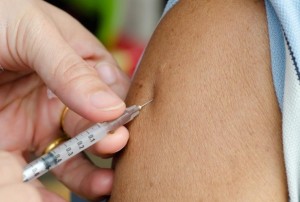Malaria, which is caused by a tiny parasite, is a seasonal disease that causes hundreds of thousands of deaths in the spring time. According to a recent article published by the New York Times, the reports of malaria this year were encouraging, meaning that infections caused by Malaria have been reduced and many lives have been saved. There was also good news in May that researchers that a potential malaria vaccine might be on the way. One would think that malaria would be dying down, however researchers in Thailand do not feel this way.
 The mosquitos that carry the malaria disease from person to person are adapting and therefore becoming resistant to the chemicals in the drugs used to prevent the disease from spreading. This causes scientists to be constantly formulating new drugs in order to save lives for malaria. The writer of the article, Francois Nosten, who is a professor of tropical medicine at the University of Oxford, writes about his time working at the Thai-Myanmar border for 30 years and remembering a time when him and his team believed that malaria was untreatable.The number of people with a particular parasite was declining but the drug that they were using was becoming less effective and more patients were dying.
The mosquitos that carry the malaria disease from person to person are adapting and therefore becoming resistant to the chemicals in the drugs used to prevent the disease from spreading. This causes scientists to be constantly formulating new drugs in order to save lives for malaria. The writer of the article, Francois Nosten, who is a professor of tropical medicine at the University of Oxford, writes about his time working at the Thai-Myanmar border for 30 years and remembering a time when him and his team believed that malaria was untreatable.The number of people with a particular parasite was declining but the drug that they were using was becoming less effective and more patients were dying.
However, it wasn’t long until they found an alternate drug, Artemisia from China that was proven to be very safe and was killing the malaria parasite very rapidly. Shortly after, studies confirmed the safety and effectiveness of the artemisia-based combination therapy or ACT for short. The new treatment method was deployed in refugee camps and the number of cases and deaths declined. There was evidence stating that the therapy worked but the World Health Organization was slow to adopt the treatment and suggest it for other countries, like Africa. This was due to the fact that after the 2000-2001 malaria epidemic, many people received ineffective drugs.
Today, the fight to end malaria is still in effect but is difficult due to money and politics. Nosten claims that “we have the science to defeat malaria, we just have to act before it defeats us.”